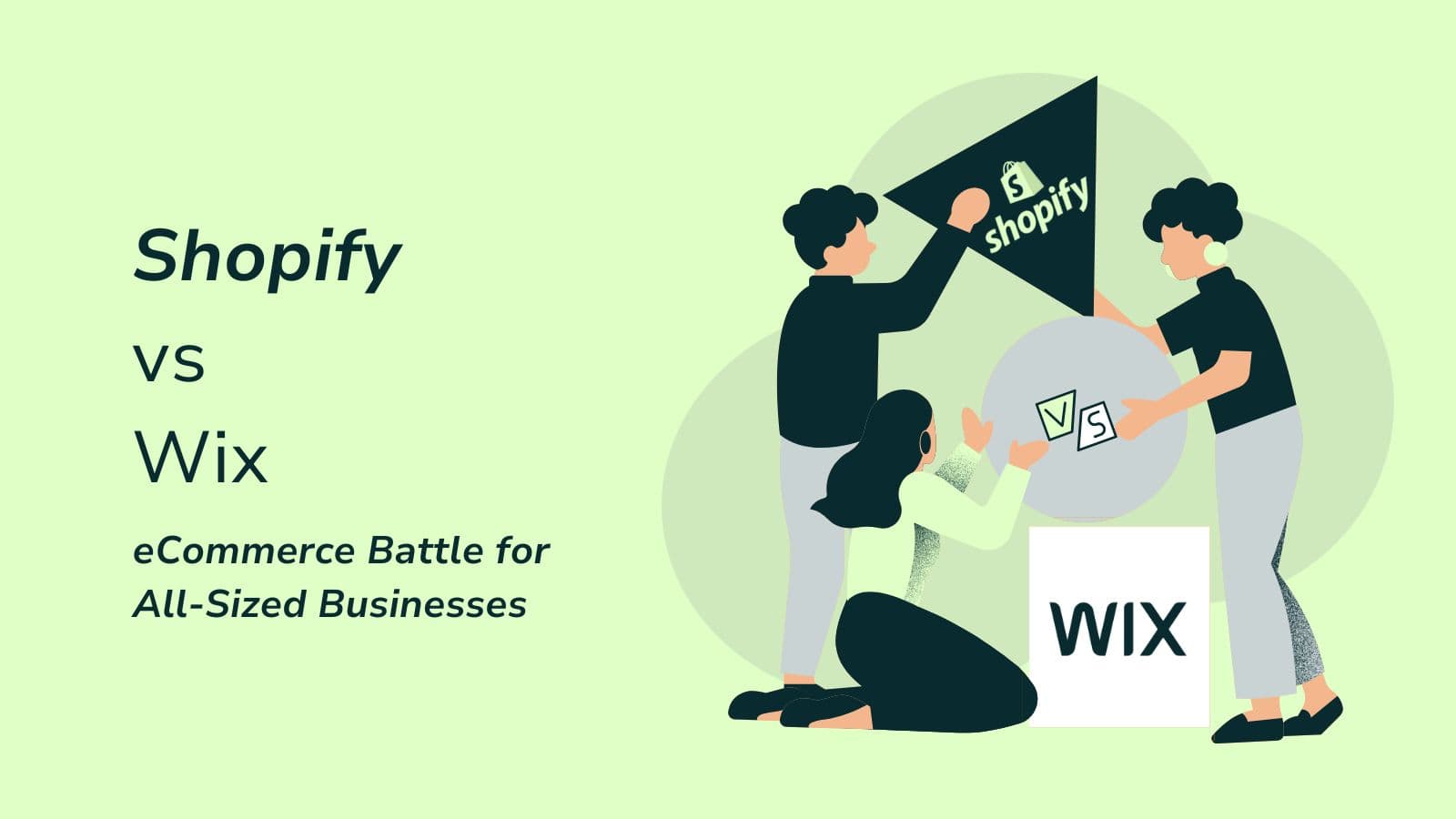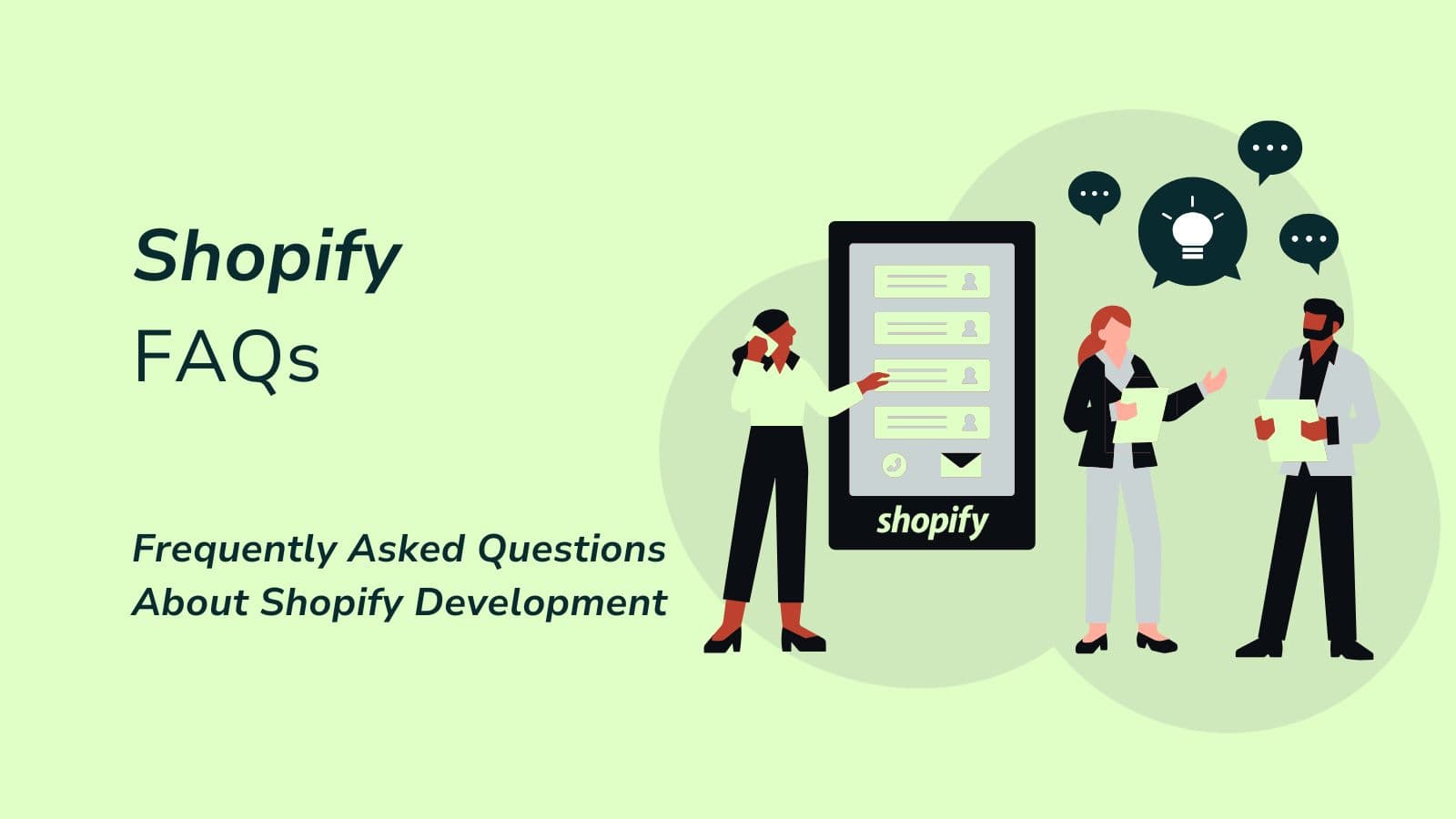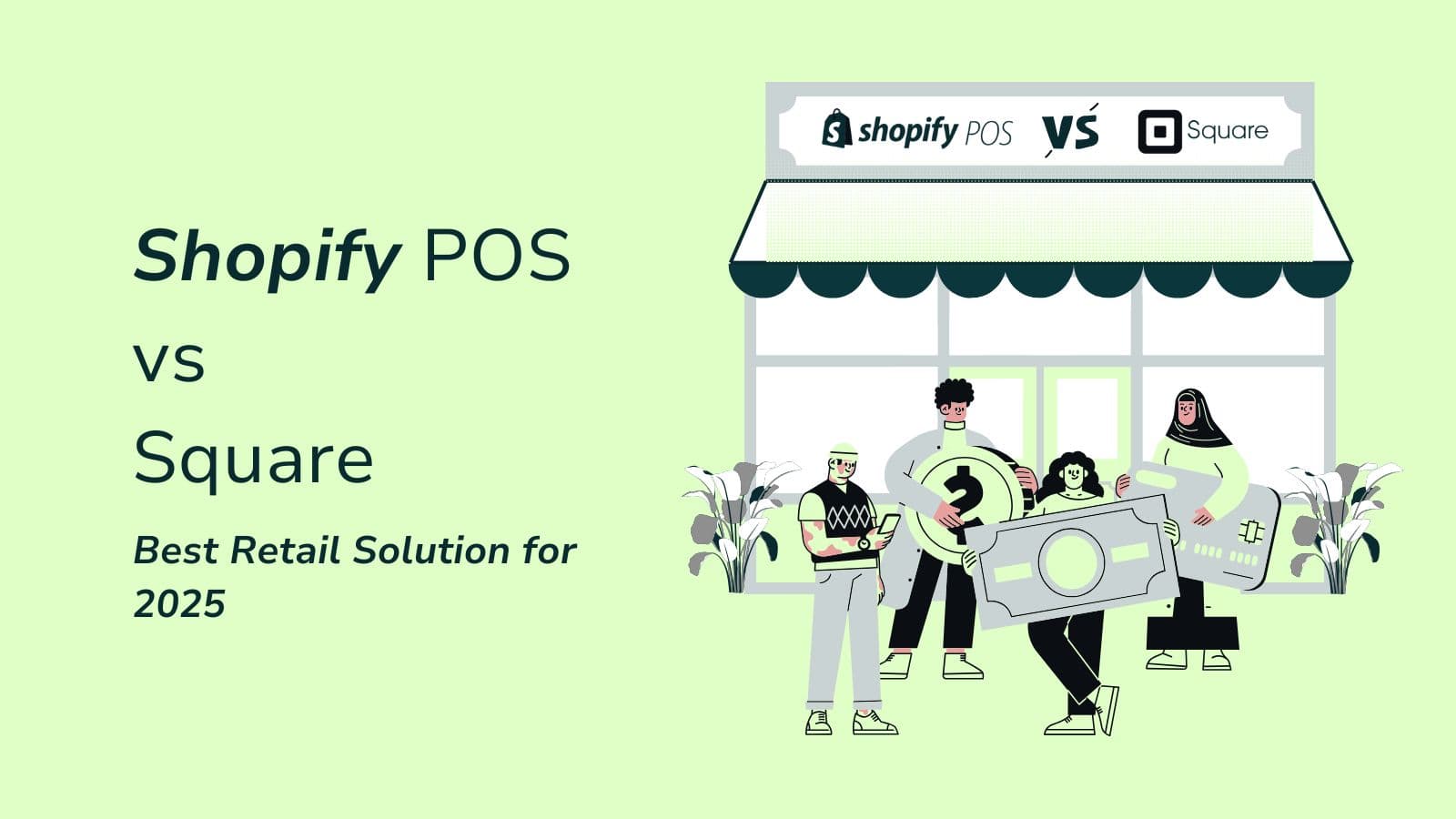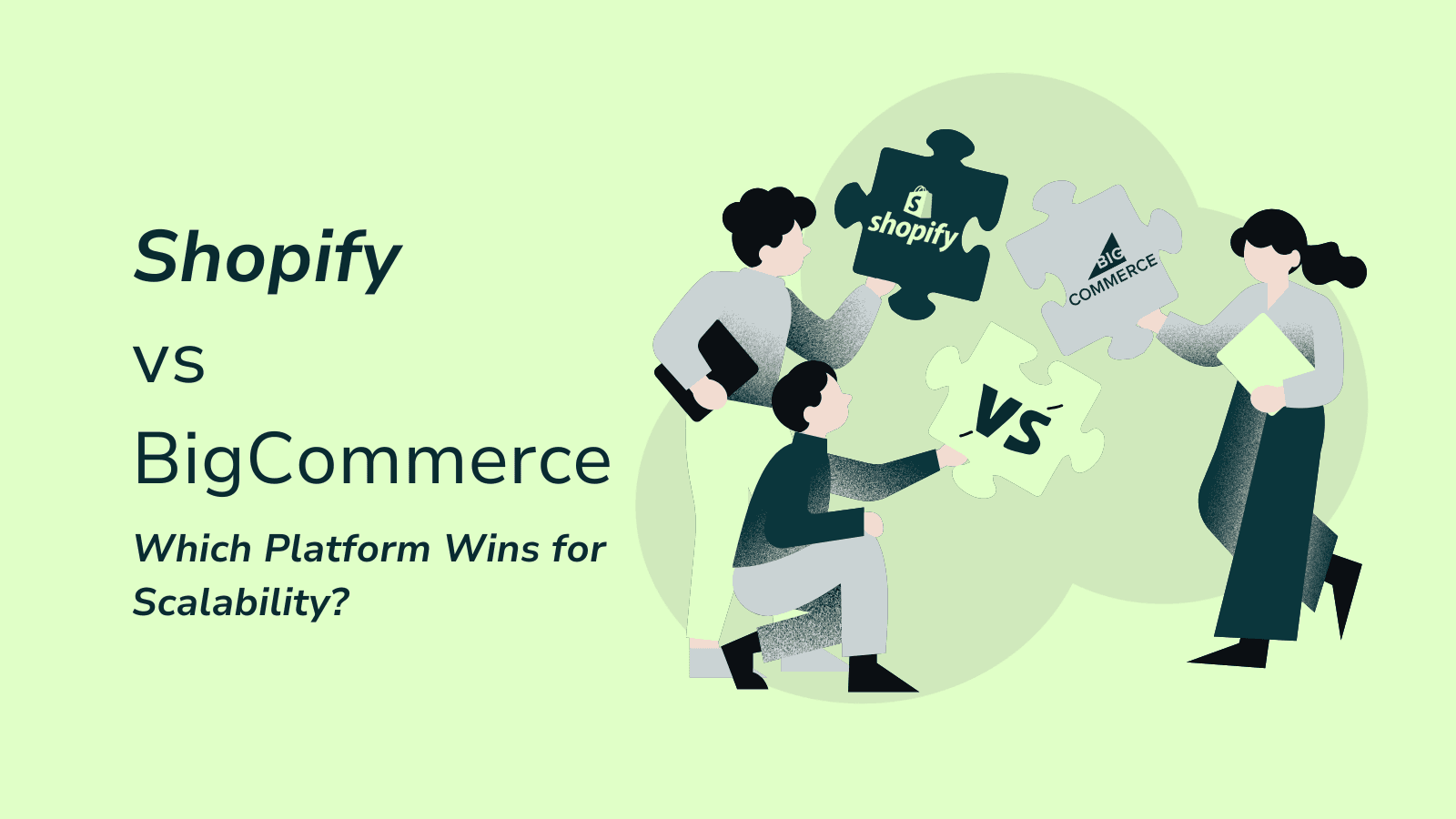February 10, 2025
Shopify vs WooCommerce: Right Platform For Your Online Store

Full-Stack Developer, Content Creator, and Product Dev Guy

To launch your online store for your business, you must think: Which online platform is best for you? Because online platforms can make or break your success. Various platforms offer online store services. Each platform has different features, costs, and functions. However, in this regard, you mostly see the Shopify and WooCommerce platforms on the top. Even in G2, both mediums have a 4.4/5 rating. Strange!
Now the question arises: Shopify vs WooCommerce? Which one is right for your online store? Let's find out this answer in this blog.
The Blog Covering
- Quick Overview of Shopify vs WooCommerce.
- Why Should You Consider Shopify vs WooCommerce?
- Comparison of Shopify vs WooCommerce.
- Final Review - Shopify vs WooCommerce.
- Professional Suggestion: Which one is Right For Your Online Store?
Quick Overview: Shopify vs WooCommerce
Shopify
Shopify is a popular e-commerce platform. It enables small to medium and large-sized businesses to create and manage online stores. Shopify offers the following various features to all digital online stores:
- Easy to Setup and Use: Shopify's setup process is straightforward, and its drag-and-drop builder makes it easy to design, launch, and manage stores immediately.
- Themes Customization: Shopify offers a wide range of customizable themes that fit every business brand. It offers more than 100 professional theme designs.
- App Integration: Shopify provides robust app store features. It offers you more than 8000 third-party apps and allows you to extend site functionality.
- Payment Gateways: Shopify supports a wide range of payment gateways such as:
- Shopify payments
- PayPal
- Stripe
- Amazon gateways.
- Analytics and Management: Shopify provides built-in tools for managing inventories, stock tracking, robust analytics tools, and automatic reorder reminders.
- Multi-Channel Selling: Shopify allows sellers to reach customers across various channels. It includes marketplaces e.g., Amazon and eBay, and social media platforms e.g., Instagram and Facebook.
- Customer Support: Shopify provides 24/7 customer support.
WooCommerce
WooCommerce is a free, open-source e-commerce plugin that allows you to convert a regular WordPress website into an online store. It is popular for its powerful, user-friendly features and customization options. Additionally, WooCommerce is backed by WordPress, a popular CMS website builder.
As WooCommerce is an open source, it requires more customizable options. However, this needs a knowledge of coding. WooCommerce offers the following features:
- Open Source Platform: It is an open-source and flexible platform. WooCommerce allows you to modify your online store to meet your business requirements.
- Themes: Just like Shopify, WooCommerce offers various built-in themes. It helps you to control the design of your online store. These themes can be modified, launched, and managed design quickly.
- Setting Up: WooCommerce is mostly for users who have deep technical knowledge. Beginners need time and knowledge to work with this platform.
- Sales Features: Like Shopify, WooCoomerce offers inventory management and shipping features. However, you need plugins to upgrade these features.
- Marketing Features: WooCommerce provides various third-party marketing plugins.
- Payment Methods: You can connect your online store with various payment methods in WooCommorce using extensions. Such as WooPayments, Klarna, and Stripe.
- Customer Support: The help and support are hard to access in WooCommorce. However, you can find blogs and posts from WooCommerce communities to guide you on your issues.
Why Should You Consider Shopify Over WooCommerce?
No doubt, WooCommerce is the first easy-to-use platform for thousands of business websites. According to MageComp statistics, there are more than 6 million active WooCommerce stores. Another statistic by Yaguara shows, Shopify has 5.23 million online stores. But why do you consider Shopify over WooCommerce? Let's find out.
In Shopify vs WooCommerce, various factors are involved and make one a popular choice over the other.
Let’s not be dramatic, be real. WooCommerce is a cost-effective solution for designing online stores. They offer you flexibility and control over your websites. But, the reality can be disappointing. Many users can get stuck with complicated plugins and theme designs. Furthermore, its customization can involve coding knowledge that beginners may not have. Limited support options and frequent updates can waste your time and even slow down your site.
In contrast, no doubt, Shopify's active stores are fewer than WooCommerce. However, its popularity edge is more than the WooCommerce. According to Google Trend data for one year, the graph clearly shows the popularity of the Shopify platform.

Not just this factor, Shopify offers the best templates, support, and sales features over WooCommerce. Shopify also offers email marketing, abandoned cart recovery, and SEO optimization tools. You can manage your businesses using the Shopify mobile app to fulfill orders, add products, and more. It empowers all-sized businesses to create and grow their online presence. Due to scalability, security, SEO friendly, and global reach features, Shopify has become a go-to choice for online stores.
What Does Shopify Do Better: Comparison of Shopify vs WooCommerce
As you know, WooCommerce provides flexibility and customization options, and Shopify offers the same features. The difference is that Shopify is easy to set up and provides more security and customer support.
If you want to switch to Shopify and want to know if this decision is best for you. Here is the best comparison of Shopify vs WooCommerce.
Shopify is Easy to Set Up
Shopify is an easy-to-use platform that allows you to set up your store fast. It is due to Shopify supporting fully hosted solutions that means everything is set up for you. In this platform, you even don't require any technical knowledge about coding.
On the other end, WooCommerce is different. You need to pay and set up separate WordPress hosting. Then, install the WooCommerce plugin on WordPress. The process can be time-consuming and frustrating for beginners with no technical background. On WooCommerce, you can also need other plugins while designing your store. A heavy plugin slows down your online store.
Shopify Offers Best Themes
Shopify offers over 230 themes, of which 13 are free. It provides more high-quality and well-optimized themes than WooCommerce. Additionally, all the Shopify themes are mobile-friendly. Shopify allows you to switch between themes without losing website content.

WooCommerce provides more than 100 themes, and five are free. You can also select more than 1000 themes from WordPress's existing theme catalog. If you want to expand on certain WooCommerce themes, you need plugins. This process can be time-consuming.

Shopify Offers Best Sales Features
After your store is online, the first thing you may notice is its sales features. Shopify vs WooCommerce! Which offers the best sales features such as inventory, shipping, and payment method. Let's discuss one by one:
Inventory
Shopify is a great platform for managing large inventories. Shopify inventory management system allows businesses to track, organize, and optimize stocks. It offers scalable features to scale your online store and manage multiple products. Shopify offers more advanced solutions for managing inventory due to growing technologies. It allows automation, integration, and improved data analysis.
While WooCommerce has limited scalability options and inventory control. It offers pre-made features such as product variations and stock tracking. However, for advanced inventory features, you need additional plugins. WooCommerce also lacks automated inventory management. It increases the time to handle your inventory.
Shipping Options
Shopify offers various options for shipment like USPS, UPS, DHL Express, and FedEx. These are the courier options, but if you want a better option then you can use Shopify Shipping. Shopify offers:
- Free shipping
- International shipping
- Custom shipping rate
- Customization delivery
- Local pickup
In contrast, WooCommerce also offers free shipping, USPS and DHL labels, and shipping zones based on locations. However, these options are limited and require additional plugins to access.
If you want an easy and hassle-free setup, Shopify is the best option for you that handles everything for you.
Payment Methods
Shopify is a great platform that offers a simple payment method. It offers a pre-built Shopify payment processing solution called Shopify Payments to accept online payments. The Shopify payments gateway supports the following payment methods:
- Credit and Debit Cards: Various credit and debit cards such as Mastercard, Visa, American Express, and Discover.
- Local Payment Methods: Support local payment methods like Bancontact in Belgium, and Sofort in Germany.
- Digital Wallets: Support digital wallets like Google Pay, Apple Pay, and Shop Pay.
- Traditional Options: The Shopify Payments method supports cash on delivery (COD).
Not only online payments, Shopify also offers a point of sale (POS) system. This allows sellers to sell in person and grow their business beyond their online store.
On the other hand, WooCommerce also offers flexible payment gateways. It allows you to integrate various payment extensions like PayPal, Amazon Pay, Stripe, and Klarna. WooCommerce no longer has its own POS system. To use a POS with WooCommerce, you will download an app like Kestrel’s Lightspeed POS. This app costs $249 per year.
Shopify Offer Great Marketing Features
The marketing feature is a great tactic to increase your online store's sales. The best way for this is to do a content marketing strategy. Shopify and WooCommerce, both offer marketing tools to enable brands to grow online stores. However, Shopify vs WooCommerce, Which platform provides great marketing features? Let's explore here.
SEO Capabilities
Shopify has built-in SEO features. It provides advanced tools such as clean semantic code, custom meta tags, and automated sitemaps. It offers a user-friendly interface with a clean URL structure and schema markup. Shopify offers a fast page loading speed. It is an important ranking factor in search engine result pages (SERPs).
In contrast, WooCommerce also provides robust SEO features. Its self-hosting offers complete technical control and permits customization of all SEO elements. Additionally, WordPress integration offers powerful plugins such as Yoast SEO or Rank Math. However, these tools add another layer of dependency and risk of conflict.
Email Marketing
Shopify email marketing is an effective plan for promoting products, services, and brands. Email marketing is a powerful way to increase sales and customer relationships. It is a conversion-rich and low-cost way to market online stores. This helps merchants to encourage customers through sign-ups and pop-ups. Email marketing also enables you to provide customers with discounts, deals, and promotions. These techniques increase organic traffic, conversion rates, and growth in your online stores.
Shopify allows merchants on the Basic and Shopify Plus plans to send 10,000 free emails at the start of each month. If you need extra emails, you will have to pay $1 for 1000 emails. However, if you are familiar with email marketing apps like Klaviyo or Privy, you can use them for this purpose.
On the other end, WooCommerce does not have built-in email marketing features. For this, you need to install plugins from a suitable provider. There are various free plugins available like MailPoet or Mailchimp for your WooCommerce online store.
Analytics
After optimizing SEO and using email marketing methods, your online store will start receiving traffic. You need analytical tools to track your store’s clicks, sales, and conversions. No doubt, Shopify offers robust built-in analytic tools to help owners analyze store performance. These tools provide actionable insights and track customer behavior and operations. Shopify dashboard insights offer the following analytics:
- Total Sales track income over a customizable period.
- Sales By Channel compares how well sales channels are performing
- Top-selling Products highlight the most sold products.
- Online Store Conversion Rate shows customers percentage who made purchases.
- Online Store Sessions track the number of visits to the store.
- Total Orders measure the total number of orders.
- Average Order Values highlight the average number of spent by customers per order.
In comparison, WooCommerce analytics are limited and compatible with WordPress 5.3 and above. But, you can still monitor useful metrics such as total sales, discounted orders, refunds, and downloads.
Shopify is More Secure
Shopify is one of the secure e-commerce platforms. It provides various pre-made and advanced security tools. These features help store owners to secure sites, customer data, and other operations. Shopify offers the following integrated security tools to ensure a safe and reliable environment.
- SSL Certificate: All Shopify stores have built-in SSL certificates. It ensures the data is encrypted between the store and the customer.
- PCI DSS Compliance: Shopify offers stores built-in PCI DSS compliance. It protects all sensitive payment information and trade.
- Fraud Detection Tools: Shopify supports pre-made fraud detection analytic tools. It flags non-secure deals based on factors such as suspicious IP addresses or conflicts in billing and shipping details.
- Two-Factor Authentication (2FA): 2FA allows store owners to set double security checks on accounts. Enabling 2FA demands two forms of verification code during login.
- Activity Monitoring: The Shopify admin dashboard has activity log features. It tracks the login attempts, staff actions, and changes made in stores.
- Automatic Updates: Shopify updates its platform with the new security features automatically. The upgraded security features provide safety against suspected actions.
In addition, Shopify also provides advanced tools to enhance security features such as:
- Rewind (Backup and Recovery)
- Shop Protector
- MalCare
- Login Lockdown
- McAfee SECURE
- Cloudflare
In contrast, WooCommerce provides security features like 2-step verification for the admin account. Advanced features take longer to set up. Additionally, WooCommerce requires more self-management to protect online stores from threats.
In WooCommerce, you are responsible for purchasing hosting. Choose the hosting service provider that offers adequate security features e.g., SSL certificate. Bluehost hosting provider recommended by WordPress offers affordable security tools. It starts from $2.95 per month.
Shopify Offer Great Customer Support
When you start your online business, you may need little guidance from the platform you choose. In the matter of customer support, Shopify has won points because they offer 24/7 help and support. This platform provides a live chat facility to its customers. Furthermore, they offer Shopify Academy to help you to polish your skills.
In the case of WooCommerce, it's harder for the users to find the support they need. However, WooCommerce provide detail documents and blogs regarding customers queries and issues.
Here the image shows a Shopify vs WooCommerce comparison that suits your business.

Final Review - Shopify vs WooCommerce: Right Platform For Online Stores?
Shopify vs WooCommerce? The choice depends on your business needs. Both platforms have different technical expertise and budgets.
Shopify is an ideal choice for all businesses as it provides an all-in-one hosted solution. This platform offers:
- Advanced design capabilities
- Well designed interface
- Easy-to-use features
- Advanced sales and marketing features
- More themes and templates
- Fast speed and high-performance
- Enhanced security.
- Visually stunning online presence.
- The scalability and best future-proof choice for growing businesses.
WooCommerce is popular for its complete control over store design features and functionality. However, you may require a technical background for this purpose. WooCommerce offers:
- Free to start but you'll pay hosting costs. However, the budget might increase when you go with paid themes or plugins.
- Built your customizable features with plugins.
- Requires coding knowledge
- Plugins for sales and marketing features.
Professional Suggestion: Which one is Right For Your Online Store?
After exploring the in-depth article about Shopify vs WooCommerce. You have a clear idea, which suits your business well.
Shopify vs WooCommerce, both platforms are great choices for businesses. But both platform has their pros and cons according to features. eCommerceDev Biz professional suggestion is:
Choose WooCommerce, if you have less budget, and easy to go with plugins. This platform offers you full control our your online store. However, you may need the knowledge of coding to utilize things. WooCommerce also provides you with the scalability features to grow your business. No doubt this platform is free to start, but you have to pay for hosting fees, paid plugins, and paid themes.
In comparison, Select Shopify, if you have a handsome budget to start your online store. Shopify offers you a pre-made hosting solution, which means this platform handles everything for you. You don't need to be stuck with hosting, installing plugins, or technical maintenance. Additionally, this platform is brilliant for inventory management, security, and customer support.
Get 0 to 1 with your Shopify Store
We love working with companies looking to succeed at Shopify
More Articles

comparison
Shopify vs Wix: eCommerce Battle for All-Sized Businesses

comparison
Shopify FAQs: Frequently Asked Questions About Shopify Development

comparison
Shopify POS vs Square: Best Retail Solution for 2025

marketing
Future of eCommerce Trends 2025: Stay ahead in Shopify development

development
How to Create an Engaging Shopify Product Detail Page (PDP)

comparison
Shopify vs. BigCommerce: Which Platform Wins for Scalability?
Frequently Asked Questions
We Know Everything Shopify!
What do we get in the FREE Consultation?
In general, anything you need to know. Having built over 50 Shopify stores allows us to give you advice on any matter you seek when it comes to eCommerce and conversions.
How long does it take to build a custom Shopify store?
The timeline for building a custom Shopify store can vary based on complexity and specific requirements. Generally, it takes anywhere from 2 to 6 weeks to complete a fully functional store, including design, development, and testing.
Can you help with migrating our existing store from another platform to Shopify?
Absolutely! We specialize in seamless store migrations from various eCommerce platforms to Shopify. We ensure that all your data, including products, customers, and orders, are transferred securely and efficiently.
What kind of support do you offer after the store is launched?
After launch, we provide ongoing support that includes troubleshooting, updates, and answering any questions you may have. Our goal is to ensure your store runs smoothly and meets your evolving needs.
Do you provide ongoing maintenance and updates for our eCommerce store?
Yes! We offer maintenance packages that include regular updates, performance checks, and troubleshooting to keep your store optimized and secure.
How do you ensure that the store is optimized for mobile devices?
We implement responsive design principles to ensure that your store looks great and functions well on all devices. This includes optimizing layouts, images, and navigation for mobile users.
Can we request specific design elements or features for our store?
Absolutely! Your vision is important to us. We welcome specific requests for design elements or features, and we’ll work closely with you to bring those ideas to life.
How do you handle SEO during the development process?
SEO is integrated into the development process by optimizing site structure, meta tags, alt text for images, and ensuring fast loading times. This helps improve your store's visibility in search engines from day one.
What is Conversion Rate Optimization (CRO) and why is it important for a Shopify store?
Conversion Rate Optimization is the process of enhancing your website to increase the percentage of visitors who complete a desired action, such as making a purchase. It's crucial because even small improvements in conversion rates can significantly boost your sales without increasing running costs.
How do you ensure that our Shopify store is SEO-friendly?
We implement SEO best practices during the development process by optimizing site structure, meta tags, alt text for images, and ensuring fast loading times. This helps improve your store's visibility in search engines from the start.